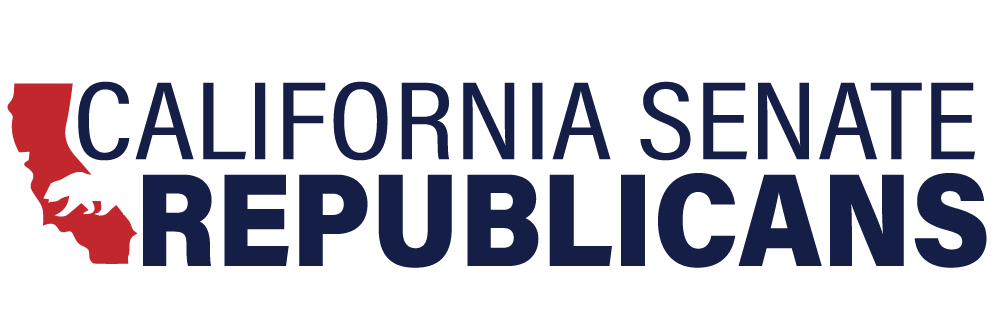Subcommittee #1 (Education)
California Students Still Failing Despite Historic Investments in Education. A fundamental issue that continues to plague California’s education system is the severe underperformance of our students. The subcommittee received a status update on approximately $24 billion in funding provided by the federal government to California schools as a response to the COVID-19 pandemic. This funding was in addition to billions of dollars the state provided during that time. Despite these historic investments in education, California students continue to fail to meet academic standards. The most recent test results from 2022-23 show that only about 35 percent of students met the Mathematics standards, a decrease of about five percent compared to pre-pandemic 2018-19 scores, and only 47 percent met the English Language Arts/Literacy standards, a decrease of over four percent. Senate Republicans remain committed to addressing the failures of our education system, and finding ways to ensure California students receive the education they need to be successful in their futures.
Subcommittee #2 (Resources, Environmental Protection, and Energy)
Democrats’ Environmental Policies Jeopardize Wildlife Habitat and Energy Availability. In this week’s hearing, Senator Brian Dahle (R-Bieber) brought attention to proposals that illustrate the consequences of Democrats’ environmental policies on wildlife and energy availability. He highlighted a significant contradiction: while advocating for green energy, these policies threaten the same animal environments that many climate-related proposals seek to protect. In one example, he raised concerns over an existing golden eagle conservation program that does little to mitigate the number of birds killed by the development of onshore wind turbines. Senator Dahle advocated a more practical approach to addressing environmental challenges and called for a critical reassessment of California’s priorities. “In the pursuit of ‘green energy,’ California has greenlit the development of onshore wind turbines in critical migratory bird habitats,” said Senator Dahle. “This practice jeopardizes the survival of entire bird species under the guise of environmental protection.” Moreover, with emerging offshore wind proposals on the horizon, Senator Dahle emphasized the urgent need for careful consideration of their potential impact on wildlife conservation.
Senator Dahle also raised concerns when the subcommittee discussed a proposal by Democrats to renege on their commitment to finance expenses related to renewing operating licenses for Diablo Canyon Power Plant. Despite the fact that the plant supplies 10 percent of California’s electricity, or power for more than 3 million homes, legislative Democrats are withholding promised loan funding, potentially jeopardizing the license renewal and $1.1 billion in federal fund awards. California’s grid reliability is at risk if the operating licenses are not renewed, and Democrats have not proposed an alternate source of electricity to ensure the lights stay on. Senator Dahle urged the public to recognize the necessity for bipartisan collaboration in reconciling environmental concerns with renewable energy objectives.
Subcommittee #3 (Health and Human Services)
Inadequate Medi-Cal Funding for Healthcare Providers is a “Pathway to Bankruptcy.” The subcommittee discussed the Governor’s plan to increase some Medi-Cal provider reimbursement rates using the recently approved Managed Care Organization (MCO) tax. Senator Shannon Grove (R-Bakersfield) lamented that current Medi-Cal rates are way too low to attract enough providers to serve the roughly 14 million Californians enrolled in Medi-Cal, stating, “What good is a Medi-Cal card if you can’t see a doctor?” The Senator shared that many Medi-Cal providers are on a “pathway to bankruptcy” by accepting Medi-Cal beneficiaries because of the insufficient reimbursements. Senator Grove continued that in order to “save maternity care” and “avoid hospital closures” in California, the state must stop placing Band-Aids on this problem, but must address the “root cause of low Medi-Cal rates.” While Senator Grove was pleased to hear that retroactive reimbursements were on their way to some providers, she urged the Governor’s administration to get the money out faster. The subcommittee will decide the fate of the full spending plan at a later hearing.
Subcommittee #4 (State Administration and General Government)
Lack of Accountability and Outcomes Despite Billions Spent on Homelessness Programs. The subcommittee heard from a variety of representatives on the status of homelessness efforts, data collection outcomes, and the State Auditor’s homelessness audit findings. The Auditor found that the California Interagency Counsel on Homelessness has not evaluated homelessness funding in the past few years, nor even tracked it in most cases, meaning that billions in tax payer dollars have been committed to these efforts with little evaluation. Meanwhile, homelessness has worsened. Given this failure to determine if homeless programs are working well, state lawmakers will struggle to prioritize limited funding to actually reduce homelessness. Senator Roger Niello (R-Fair Oaks) pointed out the Governor’s lack of ongoing funding, leaving local governments unsupported, as well as the lack of a long-term approach to figuring out which programs actually move homeless individuals towards self-sufficiency.
Subcommittee #5 (Corrections, Public Safety, Judiciary, Labor, and Transportation)
Democrats Push Higher Payments Despite Massive Debt. When unemployment claims skyrocketed during the pandemic, the Employment Development Department’s (EDD’s) systems and processes failed, resulting in an estimated $20 billion in fraudulent unemployment insurance (UI) claims. The subcommittee was updated on the progress of EDDNext, a five-year plan to update claims processing, customer portals, communication, and fraud tools to better prepare for day-to-day business and future stresses on the UI system. The state has spent about $334 million on EDDNext so far, and the proposed budget includes $327 million to fund the third year of this effort. Democratic senators used the hearing to advocate for increasing UI payments, despite the state’s massive UI debt of $20.6 billion owed to the federal government. Senator Kelly Seyarto (R‑Murrieta) pointed out that “the folks at EDD are not the key to affordability in California” and noted that Democrats’ policies are responsible for increasing the cost of housing, gasoline, electricity, groceries, and other necessities. Current EDD benefits fall short in part because California is unaffordable. The subcommittee will vote on the proposed EDD funding at a future hearing.
